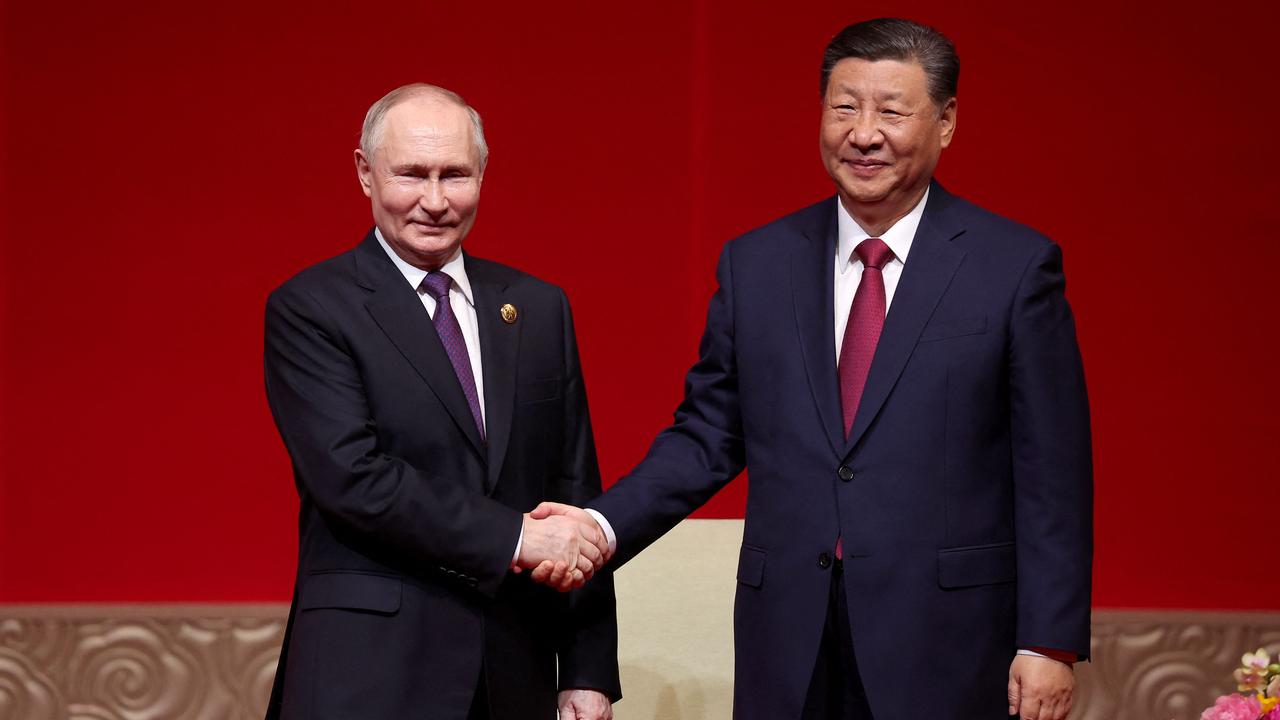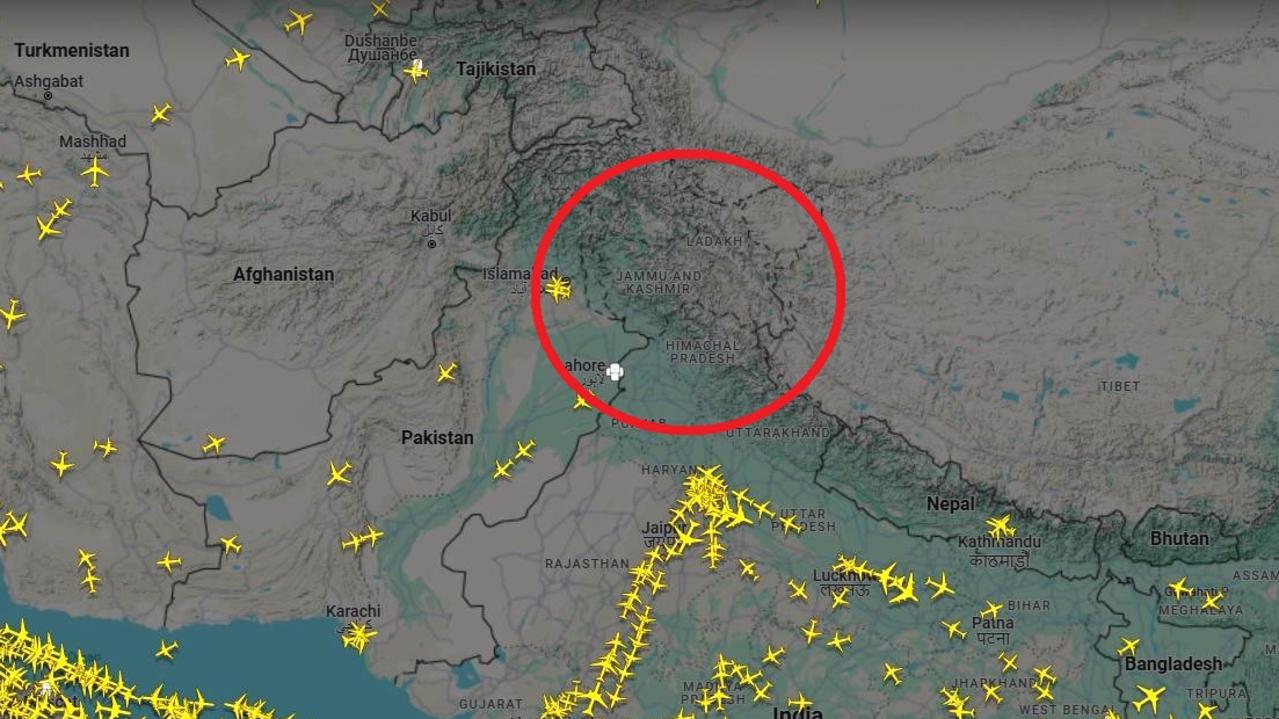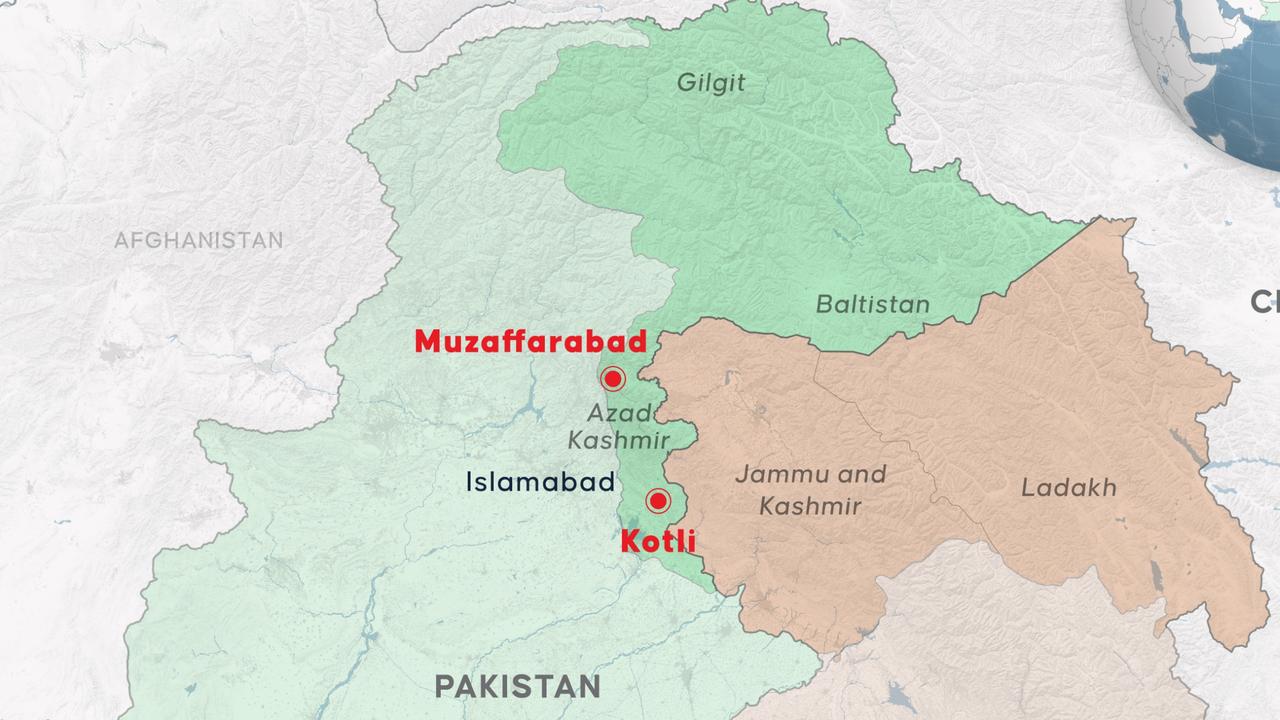Question that left Chinese official speechless
A top Chinese official has been left temporarily speechless after being asked a simple question about the country’s ongoing protests.
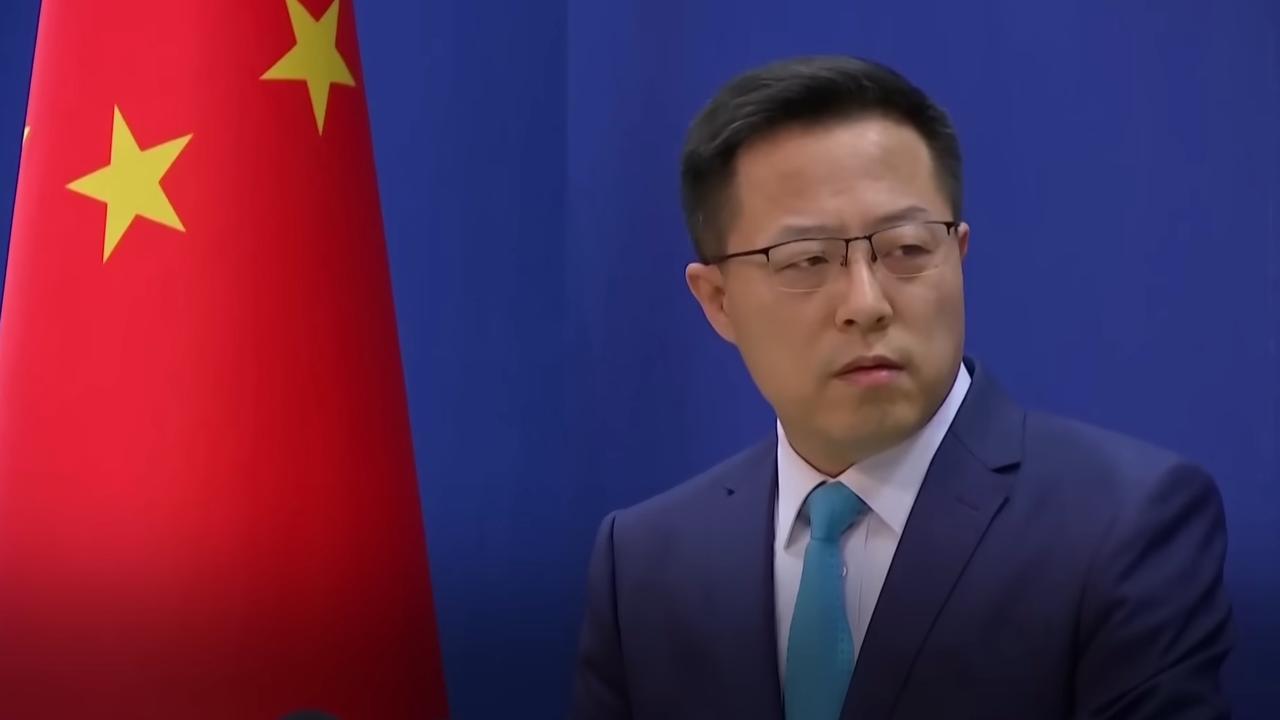
A top Chinese official has been left temporarily speechless after being asked about the country’s ongoing protests against zero-Covid policies.
The brutally awkward silence by Foreign Ministry spokesman Zhao Lijian — dubbed a “malfunction” and “complete breakdown” by social media users — came after a question by a Reuters journalist.
“Given the widespread display of anger frustration at the zero-Covid policies in recent days across China, is China thinking about ending it and if so when?” the reporter asked.
Zhao remained silent for a full 30 seconds as he stared at his papers on the lectern, before asking, “Can you repeat the question?”
After another awkward 20-second silence, Zhao — appearing to choose his words very carefully — replied.
“What you mentioned does not reflect what actually happened,” he said. “China has been following the dynamic zero-Covid policy.”
Australian anti-Chinese Communist Party activist Drew Pavlou posted a TikTok video mocking Zhao’s response.
“Watch China’s top propagandist Zhao Lijian malfunction and frantically try find his script when asked simple question about ongoing protests,” he wrote on Twitter.
“Complete breakdown. They haven’t yet received their directions which is why CCP shills on Twitter are all silent too.”
On YouTube, a clip of the press conference has been viewed more than 430,000 times.
“He’s calculating every word as if his life depends on it,” one person commented.
Another said, “It has to be stressful knowing that giving the wrong answer could get you ‘disappeared’.”
A deadly fire last week in Urumqi, the capital of the northwestern Xinjiang region, was the catalyst for a wave of outrage, with protesters taking to the streets in cities around China in what some are calling the “white paper revolution”, for the blank sheets of paper waved by demonstrators symbolising censorship.
Beijing is the last major economy to still impose tight lockdowns to control the spread of Covid, and demonstrators blame the unpopular rules for hampering the fire rescue response that left 10 dead in an apartment block blaze.
The weekend of protests were of a scale not seen in decades, as anger over unrelenting lockdowns fuelled deep-rooted frustration with China’s political system.
Stream more world news live & on demand with Flash. 25+ news channels in 1 place. New to Flash? Try 1 month free. Offer available for a limited time only >
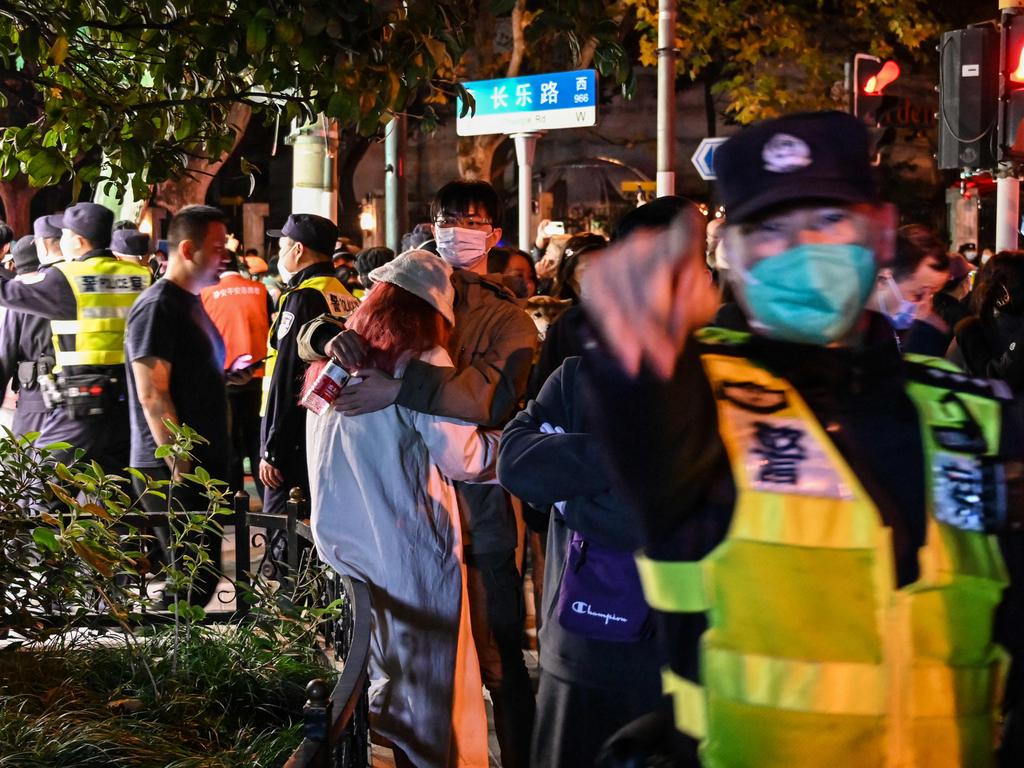
Brutal crackdown
Some of the protesters have also used the rallies to call for greater freedom of expression and the resignation of Chinese leader Xi Jinping — bold demands in a country where all organised political opposition is systematically crushed.
The Chinese Communist Party has deployed an army of riot police to smash the protests, with the country’s top security body on Tuesday calling for a “crackdown” on “hostile forces”.
Security forces were out in force across China on Tuesday to prevent any repeat demonstrations.
More protests had been planned for Monday night but did not materialise. AFP journalists in Beijing and Shanghai noted a heavy police presence of hundreds of vehicles and officers on the streets.
The CCP’s Central Political and Legal Affairs Commission, which oversees all domestic law enforcement in China, said it was “necessary to crack down on infiltration and sabotage activities by hostile forces in accordance with the law”, according to a readout of a meeting carried in state news agency Xinhua.
It also said it was crucial to “resolutely crack down on illegal criminal acts that disrupt social order in accordance with the law, and earnestly safeguard overall social stability”.
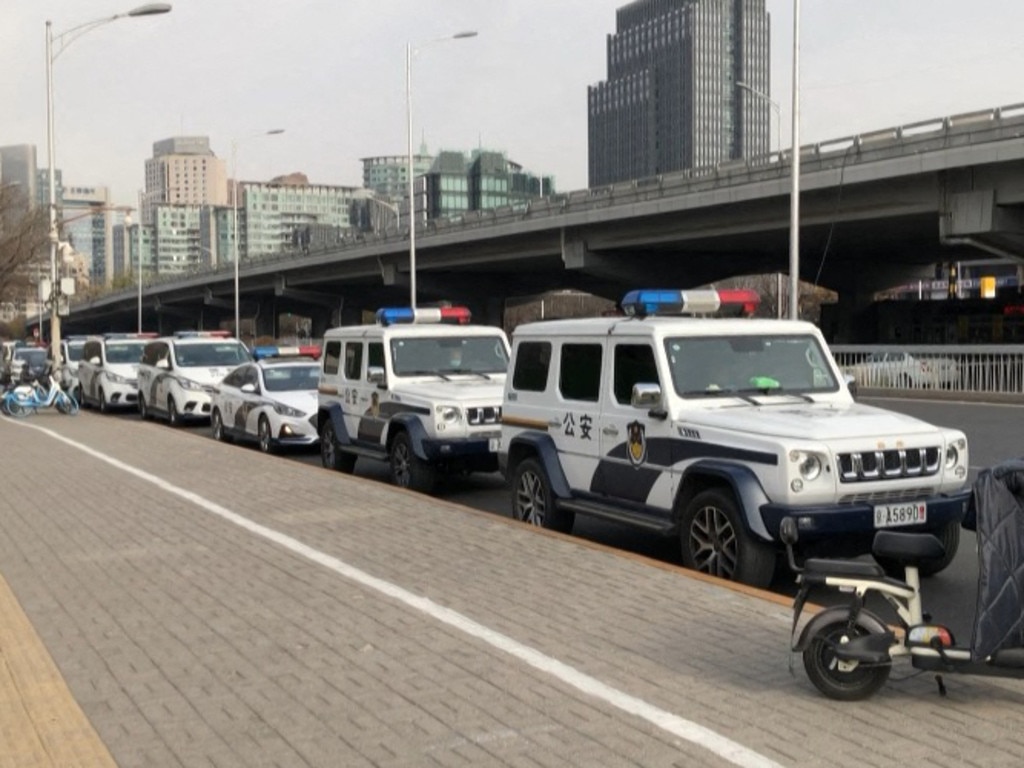
EU chief heads to China
Meanwhile, European Union chief Charles Michel set off for Beijing on Tuesday, maintaining plans to meet President Xi despite the turmoil.
Michel, president of the European Council that represents the 27 EU member state governments, stood by his plan to urge Xi to use his influence in Moscow to oppose Russia’s war in Ukraine.
“Charles Michel was invited by President Xi. When one is invited by the Chinese president, does one say ‘no’?” a European official asked rhetorically when queried about the timing of the trip.
Michel will also seek to discuss business ties, with EU capitals divided over the approach to take with China and Washington urging its Western allies to maintain their distance.
He will arrive in Beijing on Wednesday and meet Xi on Thursday before talks with the Chinese Prime Minister.
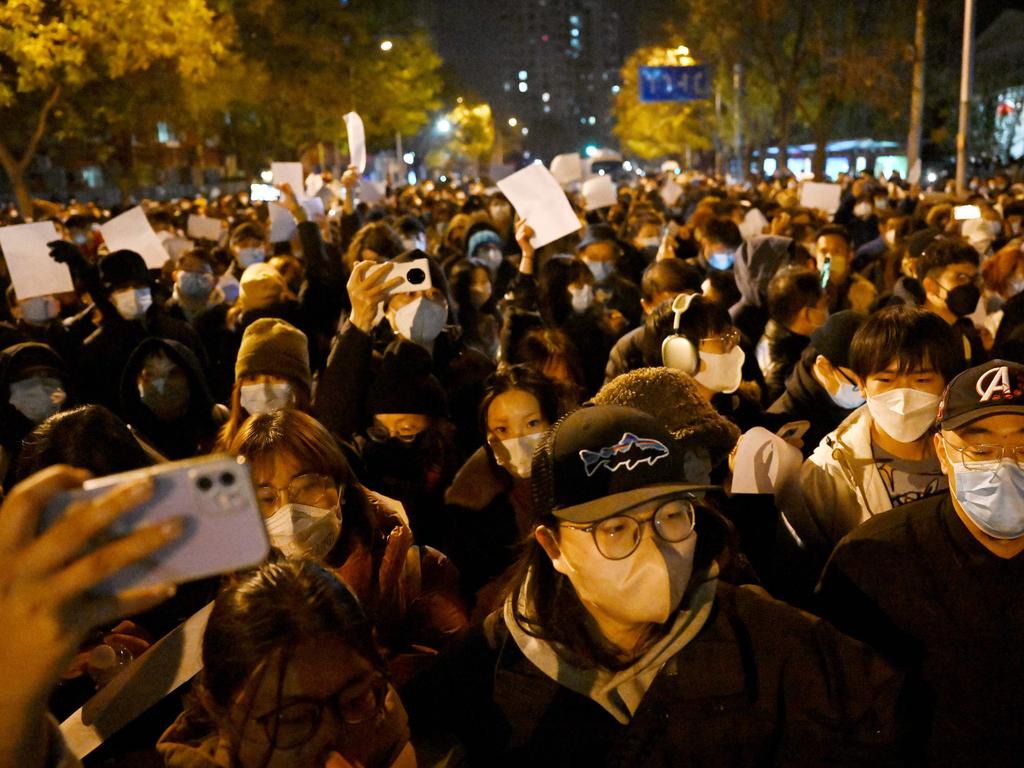
BBC journalist assaulted
It came as Britain on Tuesday summoned the Chinese ambassador in London for a rebuke after the arrest and alleged assault of a BBC journalist covering the protests.
Zheng Zeguang was called in to the foreign office after the incident involving Ed Lawrence in Shanghai, which Foreign Secretary James Cleverly had called “deeply disturbing”.
“It is incredibly important that we protect media freedom,” Cleverly told reporters at a NATO meeting in Romania, confirming Zheng had been summoned.
“It is something very, very much at the heart of the UK’s belief system. It’s incredibly important that journalists are able to go about their business, unmolested, and without fear of attack.”
Lawrence was hauled away by police late Sunday while filming a protest. The BBC said he was assaulted by police before being released several hours later.
China hit back at British alarm over the journalist’s treatment and after Downing Street urged police show respect towards the Covid protesters.
“The UK side is in no position to pass judgment on China’s Covid policy or other internal affairs,” an embassy spokesperson said, before Zheng was summoned, noting Britain’s own high death rate.
The government in London also this month expressed concern after reports emerged of Beijing operating undeclared police outposts in foreign countries including Britain.
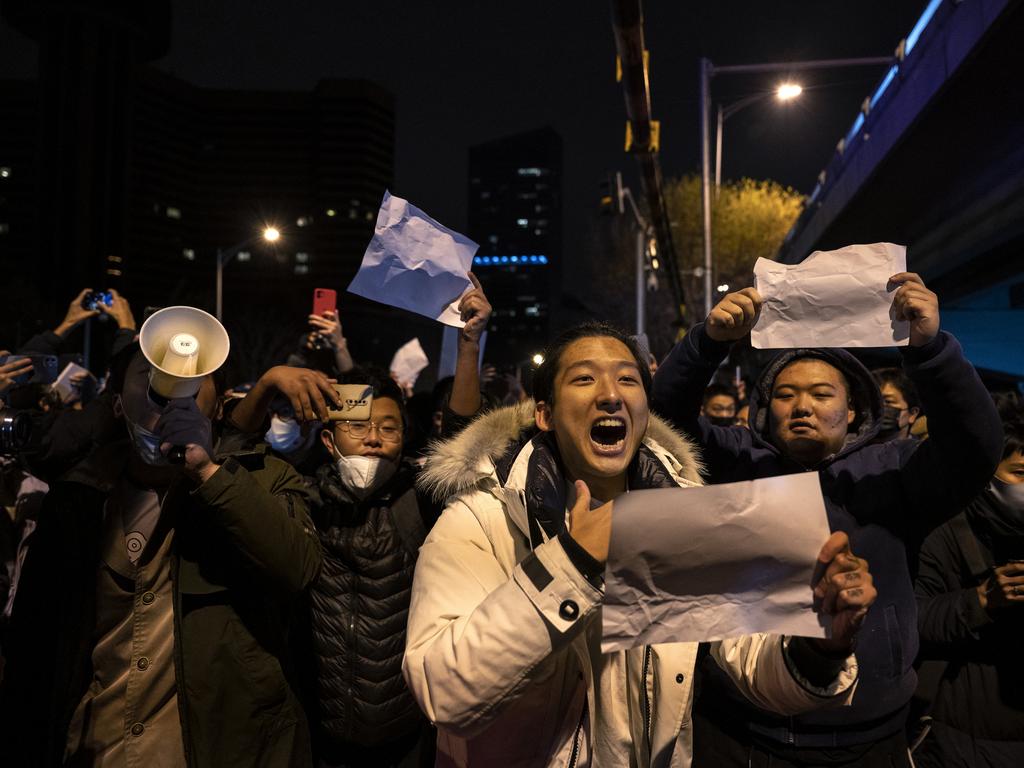
‘Golden era over’
A senior Chinese diplomat was summoned to the foreign office last month after his consulate colleagues in Manchester, northwest England, were accused of beating up a Hong Kong pro-democracy protester.
The incidents have fuelled political pressure in Britain on the new government of Prime Minister Rishi Sunak to get tough with China.
But Sunak is treading a fine line between defending freedoms and antagonising the world’s second-biggest economy.
In a speech on Monday, he said the so-called “golden era” of UK-China relations trumpeted by former PM David Cameron was “over”.
But Sunak also called for “robust pragmatism” in dealing with Britain’s competitors, disappointing critics who want him to go further in confronting Beijing.
Asked about Sunak’s comments on Tuesday, Zhao said the “remarks from the British side are a serious distortion of the facts and constitute grave interference in China’s internal affairs”.
He said Lawrence had refused police orders to leave the scene and did not identify himself as a journalist.
“This BBC journalist refused to co-operate with the police’s law enforcement efforts and then acted as if he were a victim,” he said.
Zhao also pointed out the UK’s own treatment of anti-lockdown protesters.
“In 2020, the UK police arrested more than 150 people when Londoners took to the street to protest against Covid lockdown,” he said.
“The UK must respect facts, act prudently, and end its hypocritical practice of double standards.”
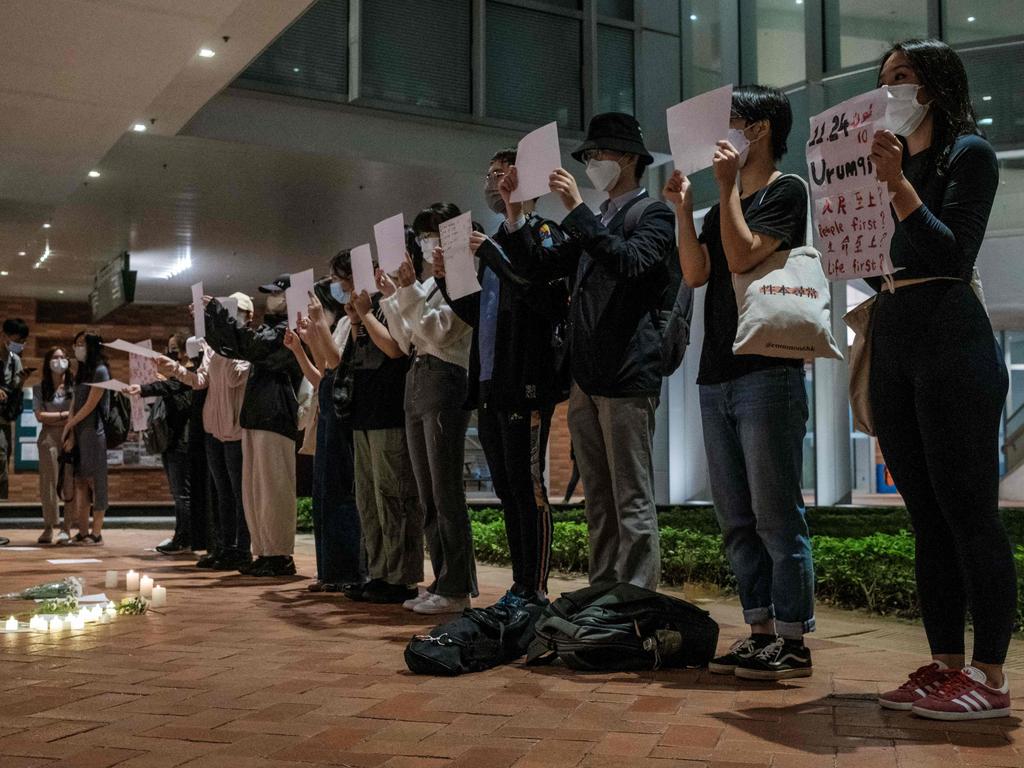
‘So many police’
People who had attended weekend rallies told AFP on Monday they had received phone calls from law enforcement officers demanding information about their movements.
In Shanghai, near a site where weekend protests saw bold calls for the resignation of President Xi, bar staff told AFP they had been ordered to close at 10pm for “disease control”.
Small clusters of officers were deployed to metro exits near the protest site. AFP journalists saw officers detaining four people throughout Monday, releasing one later, with a reporter counting 12 police cars within 100 metres along Wulumuqi street in Shanghai, the focal point of Sunday’s rally.
Frustration with zero-Covid remained palpable despite the overwhelming police deployment.
“The [zero-Covid] policies now — they’re just too strict. They kill more people than Covid,” one 17-year-old passer-by, who asked to be identified only as Ray, told AFP.
He said he had been surrounded by police when passing through the area. A man can be heard in an audio recording shared with AFP asking for his address. In response, Ray insists law enforcement officers do not “have the right” to demand it.
In semi-autonomous Hong Kong, where mass democracy protests erupted in 2019, dozens gathered at the Chinese University to mourn the victims of the Urumqi fire.
“Don’t look away. Don’t forget,” protesters shouted.
In Hangzhou, just over 170 kilometres southwest of Shanghai, there was strict security and sporadic protests in the city’s downtown, with one attendee telling AFP that 10 people were detained.
“The atmosphere was disorderly,” she said. “There were few people and we were separated. There were lots of police, it was chaos.”



